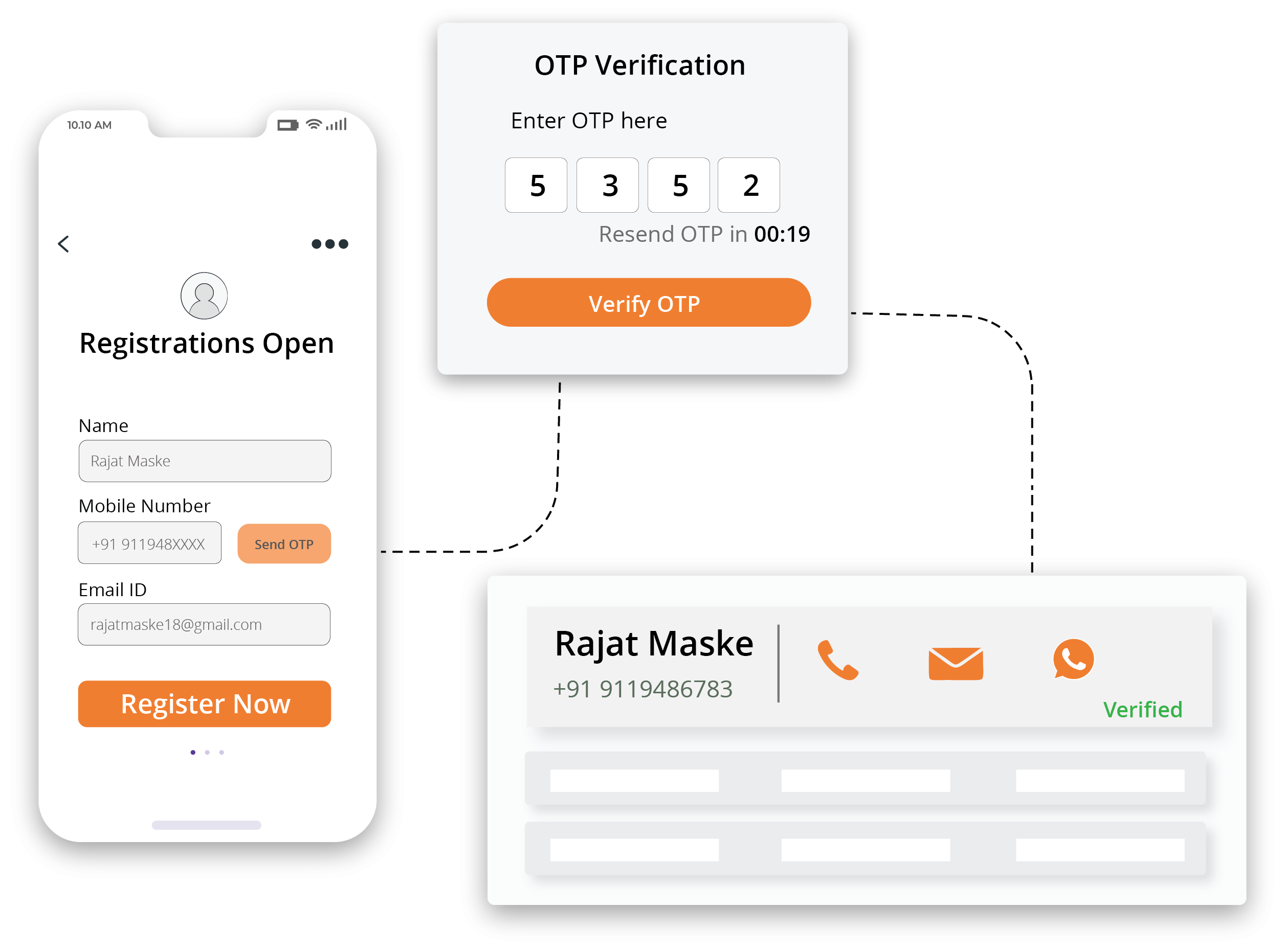Quick Guide to Education CRM and its Advantages

We will structure this blog as an “expository essay," beginning with a basic understanding of what an education CRM is. We will then elaborate on its components, followed by context-setting and a concluding goodie.
Introduction: Education CRM is a software system specifically designed for education institutes to manage their admissions and streamline their overall admissions process. It serves as a centralized platform for lead management, lead nurturing (marketing automation), reporting, and analytics.
Elaboration: Let’s delve deeper into the definition of an education CRM by understanding each of its components in detail.
Key Components of an Education CRM
Education CRM has three major components: lead management, lead nurturing (marketing automation), and reporting and analytics.
Lead Management
When we talk about lead management, we are referring to the entire journey of a lead, right from inquiry to enrollment.
Education CRMs are designed to integrate with all the various lead generation sources, such as Google Ads, Websites, Facebook Ads, Publishers (Shiksha, CollegeDunia, CollegeDekho, etc.), and third-party vendors (JustDial, Sulekkha, etc.).
This integration eliminates the chaos of maintaining separate Excel sheets for each lead source and significantly reduces the chances of lead leakage.
Additionally, it facilitates the process of lead attribution among counsellors, allowing you to easily assign leads from each source to the appropriate counsellor.
For More Information :https://www.extraaedge.com/products/education-crm/
Lead Nurturing
Lead nurturing is the process of consistently engaging with your leads through various communication channels.
There are two key elements in this definition: "consistently" refers to marketing automation, and "various communication channels" refers to omnichannel marketing. They both collectively contribute towards enhanced lead nurturing.
Marketing automation helps with automating repetitive tasks and marketing workflows. For instance, you can automatically send welcome emails to all your new leads, schedule follow-ups, and run drip email campaigns.
Omnichannel marketing involves using multiple marketing channels, such as email, two-way WhatsApp, SMS, IVR (cloud telephony), and in-built video calls, to keep your prospects engaged and facilitate quick conversions.
Reporting and Analytics
In the great words of W. Edwards Deming, "Without data, you are just another person with an opinion."
You cannot gauge the efficiency of your admissions process or the performance of your counsellors without relevant data at your desk.
This is where reporting comes in. A good reporting dashboard helps you with structured data. You can view your historical data, current status, or performance metrics in a static or periodic format.
But is this enough? Not really.
In the wise words of Clive Humby, "Data is the new oil. It's valuable, but if unrefined, it cannot really be used."
And this is where analytics steps in. Analytics involves the systematic computational analysis of data or statistics to uncover insights and make data-driven decisions. It focuses on interpreting data to understand trends and patterns and to predict future outcomes.
Analytics goes beyond reporting by providing deeper insights into data, identifying root causes of problems, optimizing processes, and supporting strategic decision-making.
Context: Now that you are equipped with the basic and advanced knowledge about an education CRM, it's crucial to understand why to invest in an education CRM.
5 Advantages of Education CRM for Education Institutes
-
Improved Lead Management: Education CRM systems streamline lead management by centralizing lead data from various sources like websites, social media, and third-party vendors. This integration reduces lead leakage, ensures prompt follow-ups, and enhances conversion rates from inquiries to enrollments.
-
Enhanced Student Engagement: CRM platforms facilitate personalized communication with prospective students through automated email campaigns, two-way WhatsApp, and other communication channels. This personalized engagement nurtures relationships throughout the enrollment journey, improving student satisfaction and retention.
-
Efficient Admissions Process: Education CRMs automate and optimize admissions processes, from application submission to enrollment confirmation. By automating routine tasks such as application tracking, document management, and interview scheduling, institutes can reduce administrative burden and expedite decision-making.
-
Data-Driven Decision Making: CRMs provide robust reporting and analytics capabilities, offering insights into enrollment trends, marketing campaign effectiveness, and counsellor performance. These data-driven insights empower institutes to make informed decisions, optimize resource allocation, and tailor marketing strategies based on real-time data.
-
Improved Institutional Efficiency: By centralizing student data and administrative processes, CRMs enhance operational efficiency across departments. Staff can access up-to-date student information, track interactions, and collaborate seamlessly, fostering a cohesive and efficient work environment.
Conclusion:
As we conclude our expository essay, our goal is to provide you with a clear recommendation for an exceptional educational CRM.
Final Thoughts
Making a decision can often be overwhelming, especially when selecting the right tools for your educational institute. That's why we recommend ExtraaEdge Education CRM and Marketing automation, a vertical CRM specifically tailored for educational institutes. Whether you operate a vocational school, coaching institute, university, or business school, ExtraaEdge is designed to streamline and enhance your admissions process. All the capabilities mentioned above are complemented by additional features to strengthen your admissions strategy.
So, what are you waiting for?
Book a Demo Now and experience the product firsthand.
- Art
- Causes
- Crafts
- Dance
- Drinks
- Film
- Fitness
- Food
- Jeux
- Gardening
- Health
- Domicile
- Literature
- Music
- Networking
- Autre
- Party
- Religion
- Shopping
- Sports
- Theater
- Wellness
- IT, Cloud, Software and Technology


